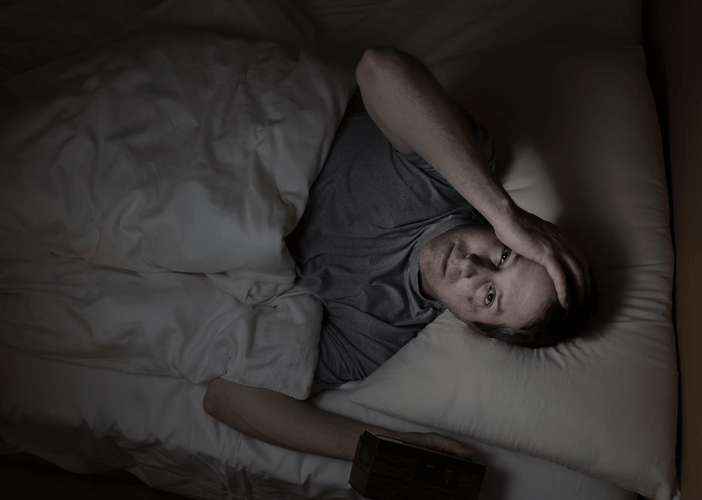For some people, AUD has hurt their relationships, careers, health, finances, self-esteem, and other aspects of their lives. Although many people are tempted to make other major life changes during this stage of recovery, such as changing jobs, going back to drinking after being sober experts recommend focusing energy on stopping drinking for at least the first year. For those seeking comprehensive recovery support, Harmony Ridge Recovery Center offers a variety of evidence-based and holistic treatment options to guide individuals toward a healthier, alcohol-free future. On the positive side, recovery also brings opportunities for emotional growth and resilience.
Alcohol Use Disorder: What to Know About Relapse
Others will go through a long period of alcohol addiction again before they seek treatment and get sober once more. Look for a better alcohol rehab near Buckhannon WV, and seek help. With time, dedication, and proper support, you can reach your recovery goals and learn to manage your drinking urges even after a relapse. One of the by far most common myths of alcohol relapse is that relapse will eventually happen, and you should simply accept that fact.
Lifestyle Quizzes
Preventing a relapse starts with having a strong recovery plan. Surround yourself with supportive loved ones, attend self-help group meetings, and/or go to therapy sessions. Having occasional cravings or thoughts of drinking is normal during recovery. But when you keep thinking about it, and start planning to do it, it’s time to get help. Empathise with that person, listen carefully to what they have to say, but don’t dismiss the problem.
For example, individuals with a healthy relationship with alcohol may choose to go sober for just a week or a month. Cognitive behavioral therapy (CBT) is an important tool for preventing relapses. It teaches you how to overcome negative thinking, which is often at the heart of a relapse. For example, you might believe that you can’t quit, that recovery takes too much effort, and that you won’t enjoy life as much without alcohol.
- Ask for help from trusted family members and friends, or seek assistance from a support group.
- While moderation may work for some individuals, it’s essential to recognize that it carries inherent risks, particularly for those with a history of alcohol addiction.
- Some recovering alcoholics don’t drink or take any drugs (prescription or otherwise) with similar effects; for them, any substance use would count as a relapse.
- When a person gives up alcohol, each of their senses is adapting to new situations without the alcohol that they have relied on for so long and so the disorientation can be overwhelming.
- The hospital or treatment center will also provide medical assistance, medications, an education plan, and evidence-based support services to help you avoid relapse.
Why Complete Abstinence Is Often Recommended
This is because AUD affects the brain, making it nearly impossible to drink normally again. Many people in recovery wonder how long it’s necessary to stay sober. Unfortunately, there isn’t a one-size-fits-all answer to that question.
The Challenges of Maintaining Sobriety
Immediately after a relapse, you should contact your support network to assemble a game plan. If you do not have a network of supportive people, you should try to find one; fortunately, you have options. You may use AA, SMART Recovery, or other support groups to help you in this process. Alternatively, you may start to look into more formal treatment.

If you think you may have a drinking problem, you’re definitely not alone. In 2021, researchers estimated nearly 30 million people ages 12 years and older in the United States had alcohol use disorder (AUD). Recovery from alcohol addiction generally follows the stages of abstinence, withdrawal, repair, and growth. The longer an alcoholic stays sober, the better their chances are for long-term sobriety. Overall, among people sober for five years, the chances of relapsing are less than 15%, according to Psychology Today. A single drink can trigger the same patterns that led to addiction in the first place, making moderation an unrealistic goal for most.
With CBT, you learn that recovery is based on practicing coping skills, not willpower. You can discuss trigger situations with your therapist and rehearse strategies to deal with them. Think about things that led to or worsened this relapse and how to remove them from your life.
Exposure to Stressors
The person may also be unaware of the risks and consequences of an alcoholic relapse. The first step is to seek treatment to learn how to stop drinking. Entering a rehab program will allow you to learn mechanisms to avoid returning to drinking. It will teach you how to have fun every day without the aid of drugs or alcohol. Seeking help will not only help Alcohol Use Disorder you stop drinking now, but will also help you maintain sobriety after you leave the rehab program.

I can’t constantly sit back and crave something I no longer even enjoy, which will be an incredible life change going forward. Reframe supports you in reducing alcohol consumption and enhancing your well-being. Plus, we’re always introducing new features to optimize your in-app experience. We recently launched our in-app chatbot, Melody, powered by the world’s most powerful AI technology.
While many striving for improved health and wellness may wonder if a recovered alcoholic can drink again, the best road forward is to avoid drinking in the future. If you struggle with drinking or struggling to maintain your recovery from alcohol addiction, The Recovery Village Drug andAlcohol Rehabcan help.Contactour alcohol addiction recovery experts today to learn more. For individuals dealing with both addiction and mental health challenges, dual diagnosis treatment provides specialized care. This program is designed to address co-occurring disorders, such as anxiety, depression, or PTSD, alongside addiction. By treating both conditions simultaneously, Harmony Ridge Recovery ensures that patients have the tools they need to manage their mental health and maintain sobriety.

